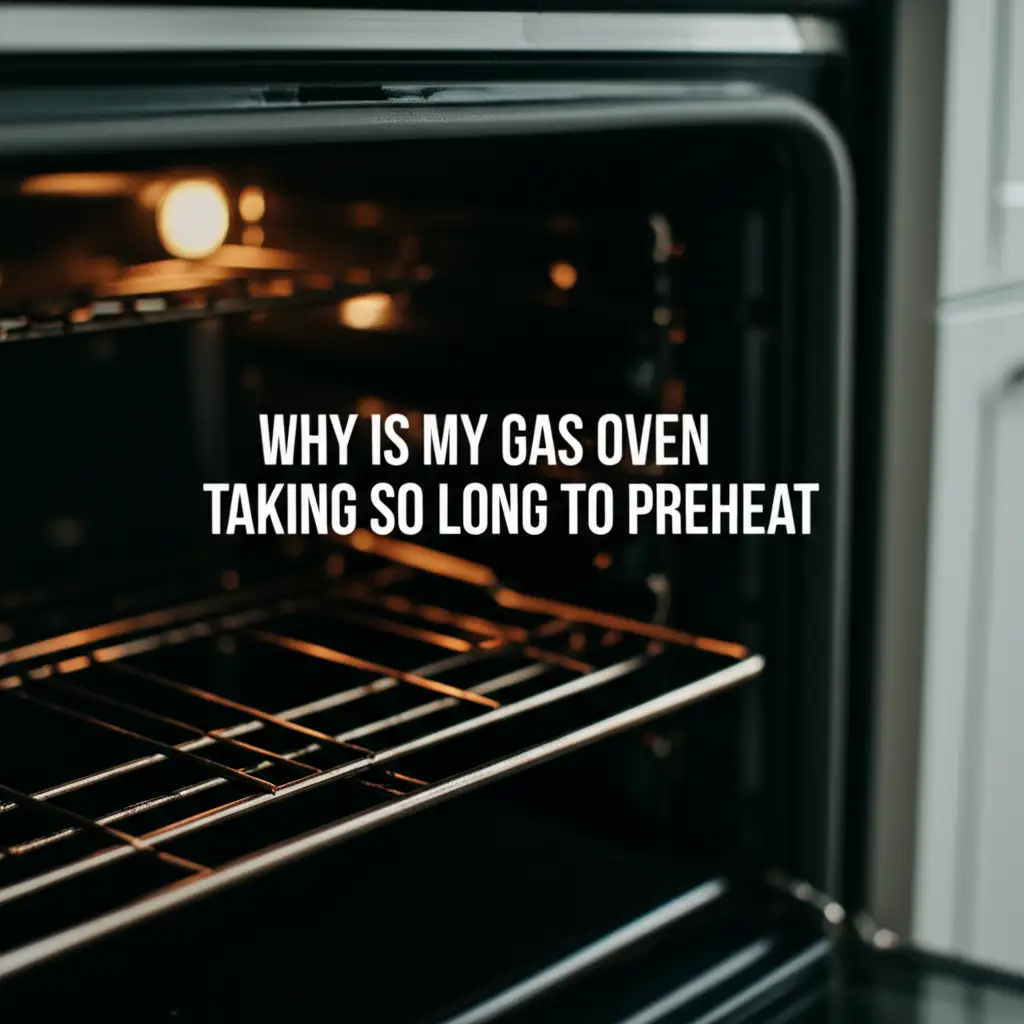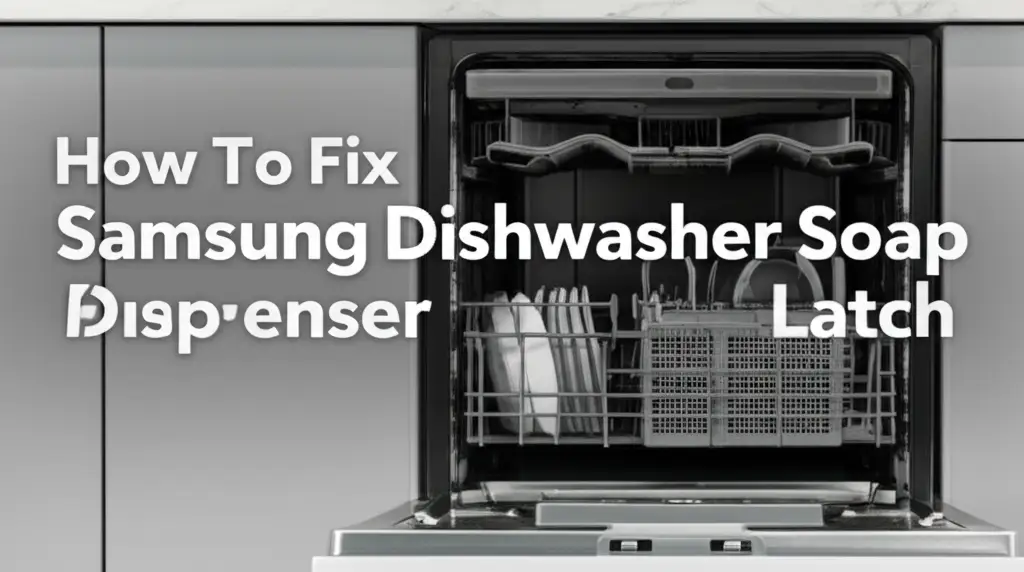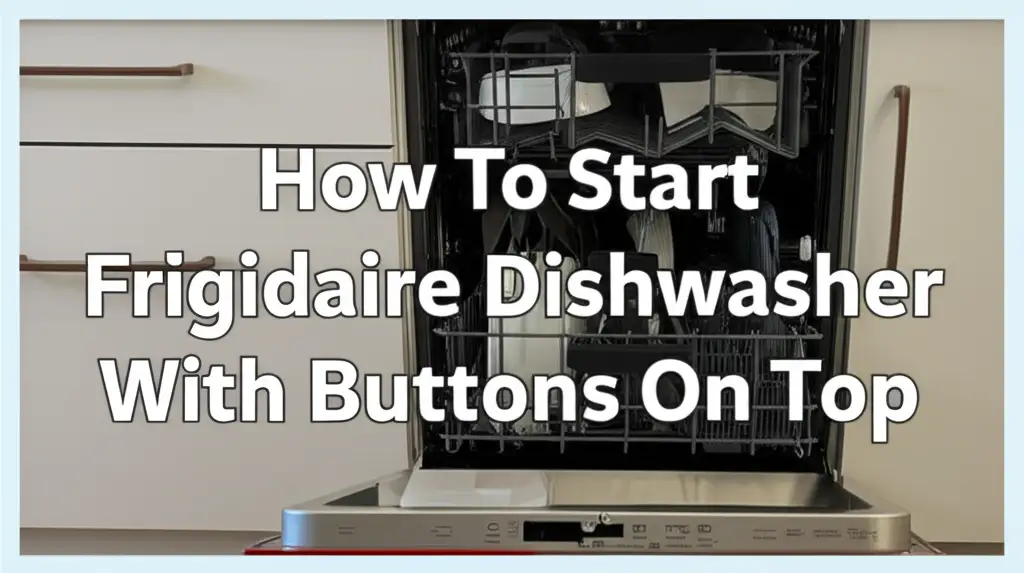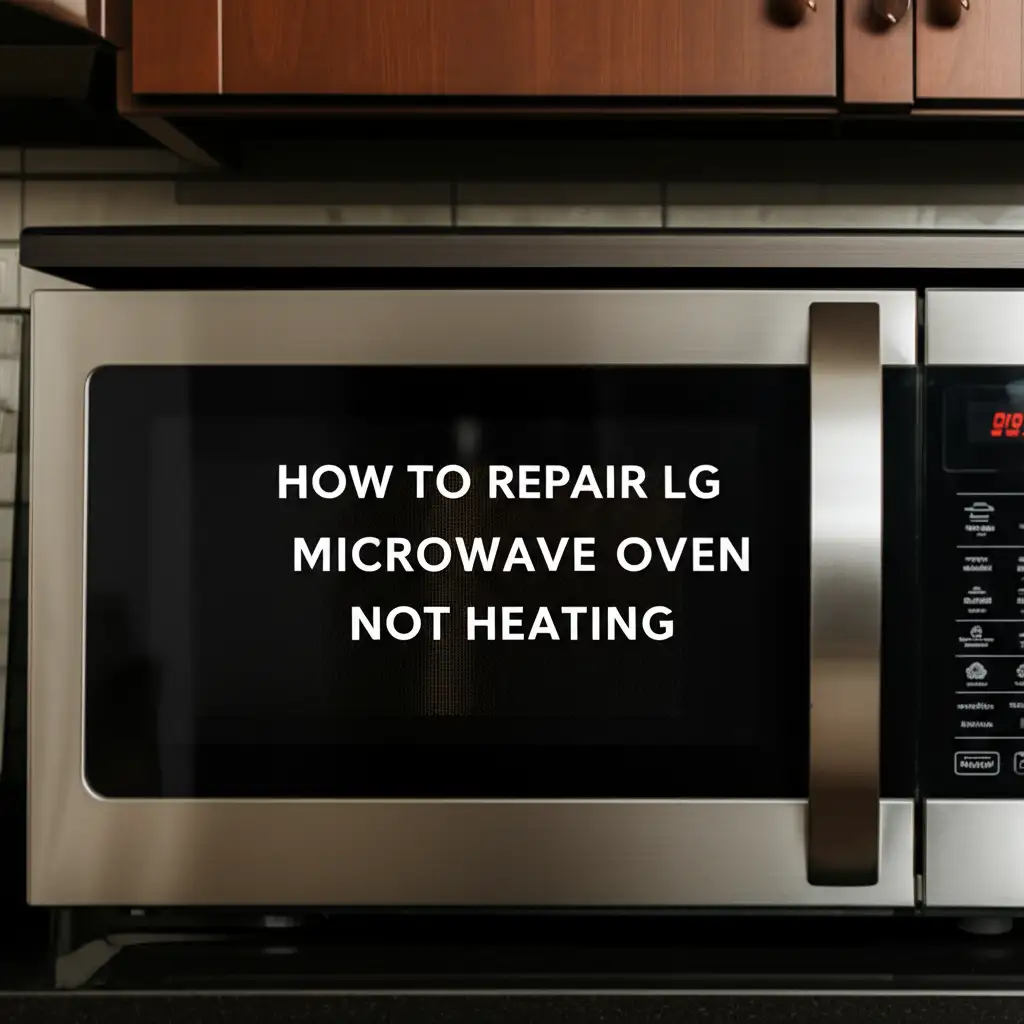· Katria Melrose · Home Appliances · 21 min read
Why Is My Electric Oven Clicking When Off
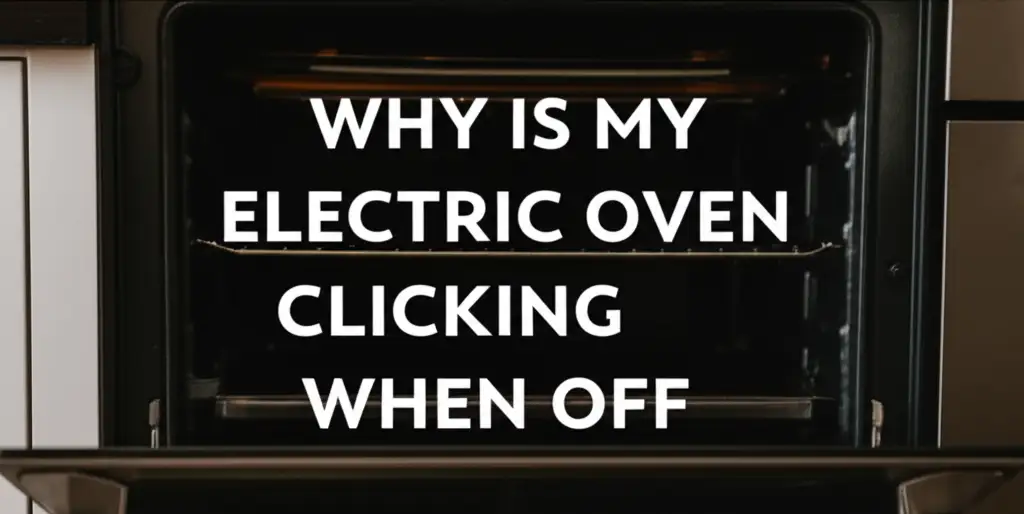
Why Your Electric Oven Clicks When Off: A Guide
You have just finished preparing a delicious meal. The electric oven is off, but a strange clicking sound starts. Perhaps it continues long after the cooking is done. This sound can be confusing. Is it normal, or does it signal a problem?
Many homeowners encounter this exact situation. Understanding why your electric oven is clicking when off can prevent worry. It also helps you determine if a repair is needed. This article will explore common reasons for oven clicking. We will cover everything from routine cooling sounds to potential electrical faults. By the end, you will know what to listen for and what steps to take.
Takeaway
- Normal Sounds: Many clicks are harmless. These happen as your oven cools down. Metal expands and contracts. Cooling fans also make noises.
- Abnormal Sounds: Persistent, loud, or continuous clicking can signal a problem. This might involve relays, thermostats, or the control board.
- Safety First: Always unplug your oven before any inspection. Contact a professional for electrical concerns.
- Troubleshooting: Listen closely to pinpoint the sound source. Consider when the clicking starts and stops.
- Professional Help: Call a technician if the clicking is new, loud, or accompanied by other issues. These include strange smells or performance problems.
Your electric oven clicks when off typically due to metal parts contracting during cooldown. The cooling fan may also operate, making small noises. However, persistent or unusual clicking can indicate electrical issues. This includes faulty relays, a malfunctioning thermostat, or problems with the control board.
Understanding the Sounds: What Clicking Means
An electric oven uses heat to cook food. When you turn it off, this heat does not vanish instantly. The oven must cool down over time. During this cooling process, various components react to temperature changes. These reactions can often create sounds.
Normal clicking sounds are often harmless. They are a part of the natural cooling cycle. Imagine stepping on an empty plastic bottle; it crinkles. Similarly, parts in your oven might make similar sounds. However, some clicks can signal a deeper problem. Knowing the difference is key to peace of mind.
This section helps you tell normal sounds from warning signs. We will look at what typical clicking sounds suggest. We will also examine how to distinguish them from clicks that indicate a fault. Listen carefully to the type and rhythm of the sound. This helps identify the source more accurately.
The Dynamics of Oven Cooling
When your oven is hot, its metal components expand. This is a basic principle of physics. As the oven cools, these metal parts contract. This contraction can cause subtle clicks, pops, or creaks. These sounds are very common.
Many ovens have internal fans. These fans circulate hot air during cooking. They also help cool the oven down after it is turned off. These cooling fans prevent damage from excessive heat. They also ensure components do not overheat.
These fans can make a soft whirring sound. They may also create small clicking noises as they spin down. This is particularly true if dust or debris affects them. Knowing the different types of sounds helps. You can then decide if the clicking is normal.
Common Culprits: Normal Operational Clicks
Many clicks you hear from your electric oven after turning it off are completely normal. These sounds are often a result of the appliance’s design. They indicate it is cooling down safely. Recognizing these routine noises can save you from unnecessary worry. It helps you avoid calling a technician when no repair is needed.
These normal clicks typically occur within a specific timeframe. They happen as the oven transitions from a hot state to a cooler one. Understanding these processes makes you a more informed appliance owner. This knowledge is important for daily appliance use. Let’s explore the most common normal culprits behind the clicking.
Cooling Fan Operation
Modern electric ovens often include a cooling fan. This fan runs even after you turn the oven off. Its purpose is to dissipate heat. This prevents delicate electronic components from overheating. The fan pushes air over hot parts. It then expels this hot air, usually through vents.
As the fan operates, it can produce a soft whirring sound. It might also cause intermittent clicking. This happens as the fan blades slow down. Small debris or dust can also cause a slight click. These sounds typically diminish and stop once the oven reaches a safe temperature. They are a sign that your oven is working as designed. The fan works to protect its internal parts.
Thermostat Cycling
While your oven is actively heating, its thermostat cycles on and off. This keeps the temperature steady. When you turn the oven off, the main heating elements shut down. However, the thermostat might still react to residual heat. It may click as it disengages fully. This is less common for continuous clicking when completely off.
More often, any thermostat clicking relates to the heating cycle itself. But if a faint click occurs once or twice as the oven cools, it could be the thermostat. It might be finishing its last cycle or resetting. This sound is usually singular or very infrequent. It should not be a constant clicking.
Contraction and Expansion of Metal Parts
This is perhaps the most common reason for normal clicking. Your electric oven has many metal parts. These include the oven cavity, racks, and heating elements. When these metal parts get hot, they expand. This expansion is natural. As the oven cools down, these same metal parts contract. They return to their original size.
This expansion and contraction can create popping, ticking, or clicking sounds. Think of ice cubes cracking in a glass of water. It is a similar principle. These sounds are usually subtle. They might occur irregularly as different parts cool at different rates. They are entirely harmless. These noises are a natural part of the physical changes in the oven. They happen as it returns to room temperature. This process might continue for some time after the oven is off. It depends on how hot the oven was. You can learn more about how hot parts of an oven can get at Does the Back of an Electric Oven Get Hot.
When Clicking Signals a Problem: Faulty Components
While some clicking sounds are normal, others are not. A persistent, loud, or continuous clicking when your electric oven is off often signals a problem. These sounds suggest that a component is failing or misbehaving. Ignoring these signs can lead to bigger issues. It might even pose safety risks.
It is important to differentiate these problem clicks from normal ones. Problem clicks usually sound different. They might be louder. They could occur more frequently. They might not stop after the oven cools. This section helps you identify these problematic sounds. We will also discuss the specific components that might be at fault.
If you suspect an issue, addressing it promptly is crucial. This can prevent further damage. It also ensures the safe operation of your appliance. Knowing what to look for empowers you. You can then decide if you need to call a professional.
Defective Relays or Control Board
Your electric oven relies on relays. Relays are switches that control the flow of electricity to different components. They turn heating elements on and off. They manage other functions. These relays are typically located on the oven’s control board. The control board is the “brain” of your oven.
A faulty relay can make a clicking sound. This happens even when the oven is off. The relay might be stuck between positions. It might be trying to engage or disengage improperly. This can cause a continuous clicking noise. Sometimes, a faulty control board sends incorrect signals to the relays. This makes them click erratically. This is a common issue for electronic appliances.
If the clicking is constant or rhythmic, suspect the control board or relays. These components manage the oven’s electrical functions. Issues here can sometimes lead to an oven turning off unexpectedly, as discussed in Why Does My Electric Oven Turn Off by Itself. Replacing these parts often requires a professional technician.
Malfunctioning Thermostat
The thermostat monitors and regulates the oven’s temperature. It signals the heating elements to turn on or off. A malfunctioning thermostat can cause problems. It might not accurately read the temperature. It might fail to send the correct signals.
If a thermostat is faulty, it could cause clicking noises. This happens if it struggles to properly open or close its internal contacts. It might attempt to cycle even when the oven is off. This type of clicking is usually distinct. It might sound like a switch trying to flip repeatedly. It is different from the gentle creaks of cooling metal. A faulty thermostat can also lead to uneven cooking. This is a significant performance issue.
Failing Cooling Fan Motor
We discussed normal cooling fan sounds earlier. However, a failing cooling fan motor is different. If the motor itself is failing, it can produce abnormal noises. These include louder clicks, grinding, or squealing. This happens even when the oven is off. The fan might be struggling to spin down. Its bearings might be worn out.
A continuously clicking or noisy fan motor needs attention. If the fan cannot cool the oven properly, internal components could overheat. This shortens the oven’s lifespan. It can also lead to more serious failures. This problem often requires replacing the fan motor assembly.
Electrical Issues and Safety Concerns
When an electric oven clicks when off, it can sometimes point to electrical issues. These issues are more serious. They warrant immediate attention due to safety concerns. Unlike normal cooling sounds, electrical problems can pose fire hazards. They can also lead to damage to your appliance.
It is crucial to recognize the signs of an electrical issue. These problems are not always obvious. A simple clicking sound might be a symptom. Always prioritize safety. If you suspect an electrical fault, disconnect the oven from power. Do not attempt to fix electrical issues yourself unless you are qualified.
This section highlights common electrical problems. We will also discuss the safety precautions you must take. Understanding these risks is vital for every homeowner. Your safety and the longevity of your appliance depend on it.
Loose Wiring or Connections
Inside your electric oven, a network of wires delivers power. These wires connect to heating elements, the control board, and other components. Over time, or due to vibration, these connections can loosen. A loose wire can cause an intermittent electrical arc. This arc might produce a rapid clicking or buzzing sound.
This issue is dangerous. An arcing connection generates heat. This heat can melt wires or ignite nearby insulation. It poses a significant fire risk. If the clicking is accompanied by a burning smell, disconnect the oven immediately. This is a strong indicator of a serious electrical problem. You should not ignore such a smell.
Power Surges or Fluctuations
Your home’s electrical system can experience power surges. These are brief spikes in voltage. Brownouts, which are drops in voltage, can also occur. These fluctuations might be external, from the power grid. They can also be internal, from other high-power appliances.
An electric oven, even when off, remains connected to power. A power surge can cause its electronic components to react. Relays might click as they try to respond to the sudden change. While often harmless, frequent surges can degrade internal components. If clicking happens only during stormy weather or power grid instability, this might be the cause. Consider installing a whole-house surge protector for protection.
Circuit Breaker Issues
Sometimes, a persistent electrical fault in an appliance can lead to a circuit breaker tripping. While a tripped breaker usually means the power is off, a failing breaker itself or a subtle fault could cause an odd interaction. If your oven is frequently causing the breaker to trip, even if it’s not directly related to the clicking, it points to a larger electrical issue. This could involve a short circuit or an overloaded circuit.
A clicking sound from the oven, combined with tripped breakers, is a red flag. It indicates a significant electrical problem. This demands immediate attention. Issues like this, even if they seem minor, can have serious implications. They can also affect other parts of your home’s electrical system. For more information on electrical issues, especially regarding gas ovens and power, you can read Why Does My Gas Oven Keep Tripping the Electric. Even though that article discusses gas ovens, the electrical principles often overlap.
Troubleshooting Steps: What You Can Do
When your electric oven is clicking when off, it is natural to feel concerned. Before calling a professional, there are several troubleshooting steps you can take. These steps help you identify the source of the sound. They can also rule out simple issues. Remember, safety is paramount during any inspection. Always disconnect power to the oven before touching any internal components.
These simple checks can often resolve the problem. They can also give you valuable information to share with a technician if needed. Do not attempt complex repairs. Focus on observation and basic checks. Your goal is to gather information about the clicking sound. This section guides you through effective troubleshooting.
Power Cycle Your Oven
The simplest troubleshooting step is to power cycle your oven. This means completely removing power to the appliance. Then, restore it after a short period. This process can sometimes reset the oven’s electronic control board. Electronic glitches can cause odd behavior, including unexpected clicking.
To power cycle:
- Locate your oven’s circuit breaker in your home’s electrical panel.
- Flip the breaker to the “OFF” position. This cuts all power to the oven.
- Wait for at least 5-10 minutes. This allows any residual power to drain from the control board.
- Flip the breaker back to the “ON” position.
- Observe the oven. See if the clicking sound returns.
This quick reset can resolve many minor electronic hiccups. It is always the first thing to try.
Listen Carefully to Isolate the Sound
Pinpointing the exact location of the clicking sound is very helpful. Is it coming from the back of the oven? Is it from the control panel area? Or perhaps from the bottom near the heating element? This helps narrow down the potential culprit.
To do this:
- Stand near the oven when it starts clicking.
- Move around the oven slowly.
- Listen from different angles. This helps you triangulate the sound.
- Note the sound’s characteristics. Is it continuous or intermittent? Is it loud or faint? Does it have a rhythm?
Detailed observations make diagnosis easier. You will have a better idea if it is the fan, a relay, or simply metal cooling down.
Check for Residual Heat
Ensure the oven is completely cool before you assume a problem. Many normal clicks occur during the cooldown phase. If you just used the oven, it will take time to cool. Large ovens, or those used at high temperatures, retain heat for longer periods.
- Feel the oven door and surrounding areas. Is it still warm to the touch?
- Allow ample time for cooling. This could be an hour or more.
- Listen again after the oven is completely cool. If the clicking stops, it was likely normal thermal contraction.
If the clicking persists long after the oven is cold, then it points to a potential issue.
Visual Inspection (After Unplugging)
Once the oven is completely disconnected from power, you can perform a basic visual inspection. Do not attempt this if you are uncomfortable. Do not touch any wires unless you are a qualified professional.
- Look for loose wires: Check connections behind the oven if accessible. Also, inspect connections under the stovetop if possible (refer to your oven’s manual).
- Search for burnt spots: Burnt or discolored wires and components indicate arcing or overheating. This is a serious sign.
- Check for debris: Sometimes, small foreign objects can get into the cooling fan. This causes clicking as the fan blades hit them.
- Inspect heating elements: While less likely to cause clicks when off, ensure they are intact. Problems with elements often lead to heating issues, as explained in How to Fix Electric Oven That Won’t Heat Up.
If you find any signs of burning or severely loose wires, do not use the oven. Call a professional appliance technician immediately.
When to Call a Professional Appliance Technician
You have performed basic troubleshooting. You understand the difference between normal and abnormal sounds. Now, if your electric oven is still clicking when off, and you suspect a problem, it is time to call a professional. Appliance repair can be complex. Electrical components in ovens carry high voltage. Attempting repairs without proper knowledge and tools is dangerous.
A qualified technician can diagnose the exact problem. They have the specialized tools. They also have the experience to safely fix the issue. Do not hesitate to seek expert help. Your safety and the proper function of your appliance are worth it. This section outlines specific situations where professional help is essential.
Persistent, Unexplained Clicking
If the clicking noise continues even after the oven has fully cooled, it is a sign. If it is loud, continuous, or rhythmic, it warrants a professional inspection. Normal cooling clicks will eventually stop. They will also vary in sound. Persistent, consistent clicking suggests a component like a relay or control board is actively failing. This component might be trying to cycle or is stuck.
Ignoring such sounds can lead to bigger problems. It could result in complete oven failure. It could also pose a safety risk. A technician can test internal components. They can accurately determine the source of the abnormal sound.
Burning Smell or Smoke
Any burning smell accompanying the clicking sound is a critical warning. This smell often indicates overheating wires or components. It suggests an electrical short or arcing. Smoke, even a faint wisp, is an even more serious sign.
If you detect a burning smell or see smoke:
- Immediately unplug the oven or turn off its circuit breaker.
- Do not use the oven again.
- Call an appliance repair professional without delay. This is an immediate fire hazard. It requires expert attention.
Tripped Circuit Breaker
If your electric oven causes the circuit breaker to trip, even intermittently, it means an electrical fault exists. This fault could be a short circuit. It could also be an overload. A clicking oven that causes breaker trips is a serious issue. It indicates an electrical problem that the breaker is trying to protect against.
A professional can use diagnostic tools. They can identify the exact electrical fault. They can then safely repair or replace the faulty component. This prevents further damage to your oven. It also protects your home’s electrical system. For signs that your oven might be experiencing problems that require a professional, you can also refer to How to Tell if Your Electric Oven Is Going Out.
Oven Performance Issues
Sometimes, the clicking sound is not the only symptom. If your oven is clicking and also performing poorly, call a technician. Performance issues include:
- Uneven heating: Food cooking unevenly.
- Failure to reach temperature: The oven does not get hot enough.
- Oven turning off by itself: The oven shuts down unexpectedly during operation.
These issues, combined with clicking, suggest a major component failure. A thermostat, control board, or heating element could be faulty. A professional can diagnose and repair these integrated problems.
Discomfort with DIY Inspection
It is perfectly fine to feel uncomfortable with appliance repair. Ovens contain high-voltage electrical components. There are risks involved. If you are unsure about disconnecting wires, testing components, or simply do not feel safe, do not proceed.
Always prioritize your safety. A professional technician has the necessary training. They have the right tools. They also carry insurance. They can perform the diagnosis and repair safely and efficiently. Never take chances when dealing with electricity.
Preventive Maintenance for Your Electric Oven
Regular maintenance is key to prolonging your electric oven’s life. It can also prevent unexpected issues. This includes strange noises like clicking when off. A well-maintained oven runs more efficiently. It also operates more safely. Many problems stem from neglect or lack of care.
You do not need to be an expert to perform basic maintenance. Simple steps can make a big difference. These practices ensure your oven functions optimally for years. They also help you spot potential problems early. This section offers practical tips for keeping your electric oven in top condition.
Regular Cleaning
A clean oven is a happy oven. Food spills and grease can build up. This grime can block vents. It can also interfere with components.
- Wipe down spills immediately: This prevents them from baking on and becoming harder to remove.
- Clean the oven interior regularly: Use oven-safe cleaners or natural solutions. For effective methods, you can review How to Clean Electric Oven or How to Clean Electric Oven with Baking Soda.
- Clean under the heating element: Crumbs and debris here can cause issues. Ensure the oven is off and cool before reaching inside. You can find tips for this specific area at How to Clean Bottom of Oven.
A clean oven prevents bad smells. It also ensures proper air circulation. This helps the oven cool down efficiently.
Keep Vents and Openings Clear
Electric ovens have vents. These vents allow heat to escape during operation and cooling. Blocked vents can trap heat inside. This puts stress on components. It can also lead to overheating. This may cause strange noises or even component failure.
- Ensure nothing blocks the oven’s exhaust vents. These are usually located at the back or top of the oven.
- Do not place items directly on top of or against the vents. This includes cookware or oven mitts.
- Clean dust and grease from vent openings. Use a soft brush or vacuum attachment.
Proper ventilation is crucial. It supports the cooling fan’s work. It also maintains safe operating temperatures.
Professional Inspections
Even with regular cleaning, professional inspections are beneficial. Schedule a technician visit every few years. They can check components you cannot easily access.
- Internal wiring: A technician can check for loose or corroded connections.
- Thermostat calibration: They can ensure the temperature is accurate.
- Relay and control board health: They can assess the condition of critical electrical parts.
- Cooling fan condition: They can lubricate or clean the fan motor. This prevents wear and tear.
A professional eye can catch minor issues before they become major problems. This preventive measure saves money in the long run. It also ensures your oven remains safe and efficient.
Avoid Overloading the Oven
Overloading your oven can hinder air circulation. This makes the oven work harder. It also makes it retain more heat.
- Do not overcrowd the oven with too many dishes. This can block airflow.
- Avoid placing aluminum foil on the oven racks or bottom. This can impede heat distribution and air movement.
Proper loading ensures even cooking. It also allows the oven to cool down as designed. This reduces strain on the cooling system. This minimizes the chances of abnormal clicking noises.
Gentle Use and Care
Treat your oven gently. Avoid slamming the oven door. This can shake components loose over time. Be careful when pulling out and pushing in oven racks.
- Do not use abrasive cleaners on electronic displays or control panels. This can damage them.
- Refer to your owner’s manual for specific care instructions. Every oven model is unique.
Gentle handling extends the life of your oven. It minimizes wear and tear on sensitive parts. This reduces the likelihood of mechanical issues that could lead to clicking.
FAQ Section
Q1: Is it normal for an electric oven to click after use?
Yes, it is often normal for an electric oven to click after use. These sounds usually come from metal parts expanding and contracting as they cool. The cooling fan also runs after the oven is off. It helps dissipate heat. This fan can make soft whirring or small clicking sounds as it slows down. These noises are part of the oven’s natural cooling process. They typically stop once the oven reaches room temperature.
Q2: Can a clicking sound indicate an electrical hazard?
Yes, a clicking sound can indicate an electrical hazard in some cases. If the clicking is continuous, loud, or accompanied by a burning smell, it is a serious warning sign. This could mean loose wiring, arcing connections, or a failing electrical component like a relay or control board. These issues can lead to overheating and fire risks. Always unplug the oven immediately if you suspect an electrical hazard. Contact a professional technician.
Q3: How long should an oven cool down before it stops making noise?
The time an oven takes to cool down and stop making noise varies. It depends on the cooking temperature and the oven model. Generally, an electric oven can take anywhere from 30 minutes to over an hour to cool completely. Larger ovens or those used at very high temperatures will take longer. Normal clicking and fan noises should diminish and stop within this cooling period. If clicking persists long after the oven feels cold, it might indicate an issue.
Q4: Should I unplug my oven if it keeps clicking when off?
If your oven keeps clicking when off and the sound seems abnormal (
- electric oven
- oven clicking
- appliance troubleshooting
- oven repair
- kitchen safety


